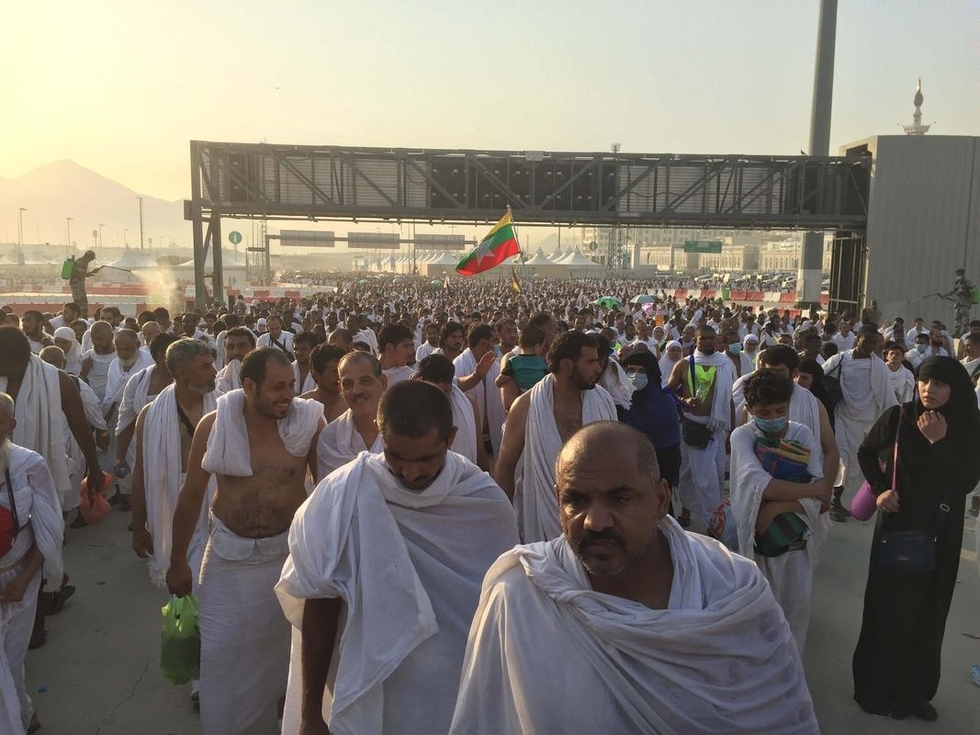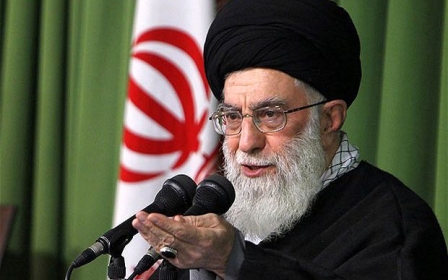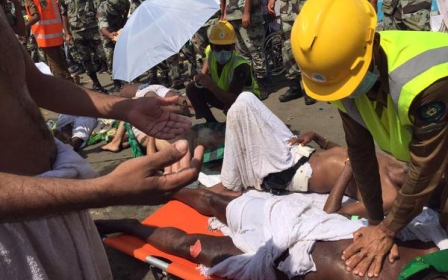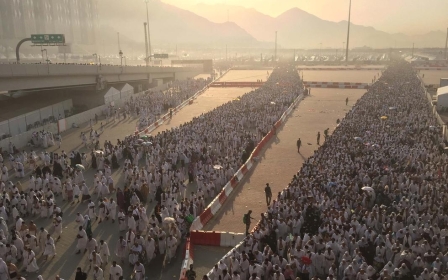As Hajj death toll rises, war of words between Iran and Saudi intensifies

An investigation by a UK-based charity has claimed that as many as 2,000 people may have died in last week's Hajj pilgrimage disaster - and the latest front in the regional rivalry between Iran and Saudi Arabia.
If this figure is proved, it would be the worst tragedy to strike the annual Muslim pilgrimage in modern history and would be far higher than the 769 death toll currently being claimed by Saudi Arabia, which makes the disaster the worst in almost a quarter of a century.
The preliminary findings by the Iran-linked Islamic Human Rights Commission, say that not only is the death toll probably much higher, but that there are also still hundreds of people still unaccounted for.
Officials from countries, including Nigeria and India, whose citizens attended this year's Hajj, have said that they have been sent photos of 1,090 bodies of unidentified people, adding to speculation that the death toll is far beyond the original figure.
Saudi Interior Ministry spokesman Major General Mansour al-Turki, however, told Associated Press that the photos include other people who died at the Hajj, not just at the stampede. Some died of natural causes, he said, and others are pilgrims who live in the country and performed the Hajj without legal permits.
Saudi’s interior ministry has ordered an investigation into the accident to find the exact cause of the incident which eyewitnesses said started when large crowds of pilgrims collided into each other at an intersection.
Offering his condolences to the relatives of the dead last week, Saudi leader King Salman said, "We have instructed concerned authorities to review the operations plan and to raise the level of organisation and management to ensure that the guests of God perform their rituals in comfort and ease."
Saudi's handling of the aftermath of the stampede, which came a week after a crane collapse killed more than 100 people in Mecca's Grand Mosque, has been heavily criticised by several countries - and its rival Iran in particular, which is thought to have lost more than 200 citizens in the incident, aggravating an animosity already fueled by their engagement in sectarian proxy wars divided along the Sunni-Shia divide.
In one corner, Iran accuses Saudi of incomptence and of playing a blame game instead of taking responsibility for the incident which eyewitnesses say occurred when large crowds of pilgrims collided into each other at an intersection.
In his first speech to the UN since the nuclear deal agreeement, Iranian leader Hassan Rouhani kicked off his speech on Monday at the UN General Assembly by calling on Saudi Arabia to acknowledge its obligations.
“I ask the Saudi Arabian government to take responsibility for this catastrophe and fulfil its legal and Islamic duties in this regard,” Rouhani told world leaders in New York.
He also reportedly suggested last week that Saudi's intervention in Yemen had left the country without enough workers to handle the Hajj safely.
Rouhani's comments followed on from Iran's Supreme Leader Ayatollah Ali Khamenei who said on Sunday that Saudi Arabia was busy trying to blame anyone but themselves, and called on the government to apologise to the families of the victims.
“This issue will not be forgotten and the nations will pursue it seriously,” Khamenei said on Sunday. “Instead of accusing this and that, Saudi rulers, instead of shunning [responsibility], must accept their responsibility in this grave incident by apologising to the Muslim Ummah and the bereft families.”
Iran's regional allies, including former Iraqi Prime Minister Nouri al-Maliki and Hezbollah leader Hassan Nasrallah, have also faulted Saudi Arabia publicly.
In the other corner is Saudi whose health minister issued a statement hours after the incident, suggesting that pilgrims had failed to follow instructions. Until the interior ministry investigation is complete, Iran's jibes, suggest Saudi officials, are tasteless.
"This is not a situation with which to play politics," Saudi Foreign Minister Adel al-Jubeir said on Saturday. "I would hope that the Iranian leaders would be more sensible and more thoughtful with regards to those who perished in this tragedy and wait until we see the results of the investigation.”
Battle on social media
Saudi and Iranian citizens have lit up social media with rumours, commentary and videos as tensions rise. Some Saudis have claimed that Iran's Revolutionary Guards Corps instigated the stampede, and uploaded videos on YouTube that allegedly show Iranians walking in the opposite direction before the stampede began. Meanwhile Iranians claim their countrymen were singled out due to religious and regional differences.
The case of a former Iranian ambassador, who was thought to have traveled to Saudi and has reportedly been missing since the stampede, has also attracted particular attention.
While the family of Ghazanfar Rokanabadi have said that the former ambassador was lightly injured in the crush of people, they have not been able to reach him since Thursday, according to a statement by his brother, Mortada.
While Saudi-funded news channel Al Arabiya reported that no one under Rokanabadi's name entered the country, Iranian media have refuted this claim and accused Saudi Arabia of abducting Rokanabandi and withdrawing information about his whereabouts intentionally.
Analysts have said that the almost week-long public bickering over the incident has far-reaching ramifications.
“These tragedies have intensified the longstanding power struggle between the Sunni House of Al-Saud and the Shiite leaders of Iran over who is the legitimate custodian of the two holy places - and by extension, who is the rightful leader and defender of the Islamic faith,” wrote Jennifer R Williams in a Brookings Institute briefing this week.
The growing tensions between the two "promises only to feed more mutual conspiracy theories and paranoia and give the two countries incentive to continue their support of opposing proxies throughout the Middle East," Slavin wrote on Monday.
New MEE newsletter: Jerusalem Dispatch
Sign up to get the latest insights and analysis on Israel-Palestine, alongside Turkey Unpacked and other MEE newsletters
Middle East Eye delivers independent and unrivalled coverage and analysis of the Middle East, North Africa and beyond. To learn more about republishing this content and the associated fees, please fill out this form. More about MEE can be found here.




